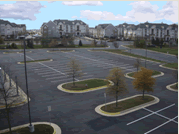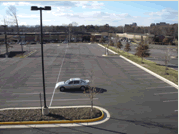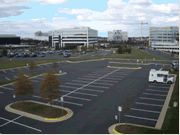 |
 |
 |
|---|
 |
 |
 |
|---|
Stormwater Drainage Design for Parking Lots
Course Outline
Parking lots can be seen almost everywhere, from shopping centers to office buildings to schools. Stormwater drainage design is an integral component in the design of parking lots. This course covers the basics of designing an adequate storm drainage system for a parking lot. Design methods are presented for evaluating rainfall and runoff magnitude, pavement drainage, gutter flow and drainage inlets. Concept for the design of detention/retention facilities is also discussed. Several examples are presented to illustrate the detailed procedures for designing storm drainage system of a parking lot. The basic principles discussed in this course can be applied not only to parking lots, but to parking decks, paved streets and highways as well. This course includes a multiple-choice quiz at the end, which is designed to enhance the understanding of course materials.
Learning
Objectives
At
the conclusion of this course, the student will be able to:
Course Content
In this course,
you need to study the following document:
Stormwater Drainage Design for Parking Lots (![]() ,
59 pages, 3.6 MB)
,
59 pages, 3.6 MB)
Please click on the above underlined hypertext to view, download or print the document for your study. Because of the large file size, we recommend that you first save the file to your computer by right clicking the mouse and choosing "Save Target As ...", and then open the file in Adobe Acrobat Reader from your computer.
Related Links
For
additional technical information related to this subject, please visit the following
websites or web pages:
FHWA - Hydraulic Engineering Circular No. 22: Urban Drainage
Design Manual (Second Edition)
Design Standards For Parking Lots – Department of Public work, City of Lincoln, NE
Quiz
Once you finish studying the above course content you need to take a quiz to obtain the PDH credits.
